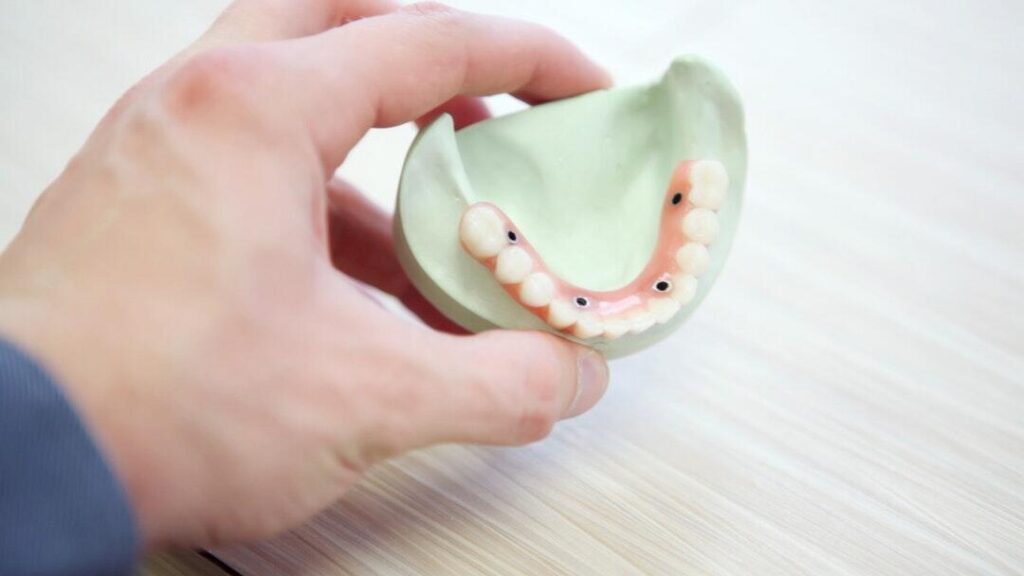Dental implants are a trusted way to replace missing teeth and restore your smile. But when bone loss occurs, the process can be more complex. Knowing how bone health affects implant success helps you make smart choices for your dental care.
This guide explains everything about dental implants and bone loss. You will discover treatment options, recovery tips, and ways to protect your jawbone. With the right care, you can enjoy a strong and confident smile.
What Are Dental Implants?
Dental implants are artificial tooth roots placed into the jawbone. They provide a strong foundation for fixed or removable replacement teeth. Implants are made of titanium, a material that is compatible with the human body.
Unlike dentures, dental implants do not slip and can help preserve jawbone density. They look and feel like natural teeth. Many patients find that they improve their ability to eat and speak.
Implants can last a lifetime with proper care. This makes them a preferred choice for many people dealing with missing teeth. Understanding how they work is the first step towards getting them.
Why Bone Loss Occurs
Bone loss around teeth can happen for various reasons. The most common reason is periodontal disease, which damages gum tissue. This condition can lead to the loss of bone that supports teeth.
Another cause of bone loss is tooth loss itself. When a tooth is removed, the jawbone can start to deteriorate. This is because the bone needs stimulation from teeth to maintain its density.
Bone loss can also occur due to a genetic predisposition or injury. Understanding these factors is essential in addressing dental implants with bone loss. It indicates the necessity of proper dental care and regular checkups.
The Impact of Bone Loss on Dental Implant Success
Bone loss can significantly affect dental implant success. If there isn’t enough bone, the implant may fail. The jaw needs to be strong and healthy to support an implant.
Without adequate bone, the dental implant might not integrate properly. This leads to complications that could necessitate removal. Understanding this connection is vital for anyone considering implants.
For patients with bone loss, assessing the jaw’s condition is essential. Dentists often use imaging techniques to evaluate the bone structure. This information guides the treatment plan for implants.
Can Dental Implants Stop Further Bone Loss?
Yes, implants can help stop future bone loss. They act like natural tooth roots, stimulating the jawbone through regular chewing and biting. This helps maintain bone density and strength over time.
Once an implant is securely placed, it encourages healthy bone growth around it. The stimulation signals your body to keep regenerating bone cells. This prevents the area from shrinking or weakening further.
For long-term success, good oral hygiene and regular dental visits are essential. These habits keep both the implant and the surrounding bone healthy.
Bone Grafts for Dental Implants
A bone graft is a common solution for patients with severe bone loss. This procedure involves placing new bone material into the jaw. This material may come from your body or from a donor.
Bone grafting can create a stable base for dental implants. The graft helps regenerate bone and can improve the chances of success. After the graft heals, implants can be placed.
Bone grafts can be a simple or complex procedure. Recovery times may vary depending on the type of graft used. Consulting with your dentist about this option is important if you have concerns about bone loss.
The Dental Implant Procedure
The dental implant procedure is a multi-step process. First, the dentist evaluates your mouth to determine if you’re a candidate. After approval, the initial surgical phase includes placing the implant into the jawbone.
Over time, the jawbone integrates with the implant in a process called osseointegration. This healing period usually lasts several months. Once healed, abutments are added to connect the artificial teeth.
Finally, the dentist will attach the permanent crowns. This completes the process, giving you a strong and natural-looking smile. Knowing what to expect can ease anxiety before the procedure.
Jawbone Loss Treatment Options
Patients with jawbone loss have several treatment options available. Apart from bone grafts, options may include sinus lifts and ridge augmentations. Each of these procedures aims to restore bone density.
A sinus lift adds bone to the upper jaw, improving implant placement. On the other hand, ridge augmentation focuses on rebuilding the gum line. These techniques can prepare your jaw for successful implants.
Discussing all available options with a dental professional is important. They can guide you based on your specific needs. This proactive approach can lead to a better outcome for your smile.
Dental Implant Recovery
Dental implant recovery varies for each patient. Factors like the type of surgery and healing ability play a role. General recovery time can range from a few weeks to several months.
During recovery, patients should follow their dentist’s instructions closely. This includes proper oral hygiene and dietary recommendations. Avoiding hard foods can help protect the healing site.
Periodically returning to the dentist for check-ups ensures everything is healing well. Monitoring the recovery process is crucial for long-term success. Knowing what to expect helps ease worries during this time.
Maintaining Bone Health
Strong bones are essential for lasting dental implants. Healthy nutrition, good oral hygiene, and regular dental check-ups make a big difference. Calcium and vitamin D are especially important for bone strength.
If you want to learn more about maintaining bone health, your dentist can provide personalized advice. They can help you create a care plan that protects your bone density long-term.
Even small habits-like brushing twice daily and limiting sugary foods-help preserve bone structure. Caring for your teeth is caring for your bones, too.
Dental Implant Complications
Dental implant complications can arise, just like with any medical procedure. Infection, nerve damage, or improper placement are possible issues. Awareness of these risks helps in making informed decisions regarding your care.
Proper aftercare greatly reduces the risk of complications. Follow-up appointments allow the dentist to monitor progress. Early detection of issues is vital to resolving complications quickly.
Being aware of symptoms like pain or swelling is important. Contacting your dentist right away can lead to timely intervention. Understanding complications helps you prepare emotionally and physically for the procedure.
Dental Bone Regeneration Techniques
Dental bone regeneration techniques are essential for those with bone loss. Procedures like guided tissue regeneration encourage new bone growth. These methods can set the stage for future implants.
Other techniques may involve using growth factors and stem cells. Such methods enhance the body’s natural healing capabilities. This promotes quicker recovery and improved success rates for implants.
Consulting with a dentist about these advanced methods can be beneficial. They can help you understand the best course of action. A tailored approach ensures that you receive the best care possible.
Customizing Your Dental Implant Plan
Your dental implant plan should be customized to fit your needs. Factors likebone density, personal health, and lifestyle influence the approach. It is essential to have a thorough consultation with your dentist before proceeding.
Your dentist will develop a personalized treatment plan. This plan aims to address any specific concerns or complications. Open communication with your provider can lead to better outcomes.
Discussing your goals and expectations is vital. This allows both you and your dentist to work together effectively. A collaborative approach promotes trust and satisfaction in treatment.
Understanding Dental Implant Success Rates
Dental implant success rates are generally high. This success depends on factors like bone quality and overall health. Most patients can expect positive outcomes with proper care.
Success rates also relate to the experience level of the dental professional. Choosing a skilled and knowledgeable dentist is crucial. Their expertise can significantly enhance the likelihood of successful placement.
Discussing success rates with your dentist can provide peace of mind. Understanding the factors that influence success helps manage expectations. A clear picture of success allows more informed decision-making.
Caring for Your Dental Implants
After successfully receiving dental implants, care is essential. Regular brushing and flossing help maintain oral hygiene. Routine dental visits are also important to monitor the health of your implants.
Patients should avoid hard foods that could damage implants. Using an antibacterial mouthwash may also benefit implant care. Proper maintenance promotes a longer lifespan for your new smile.
Listening to your dentist’s advice is key to long-term success. Being proactive about care can prevent complications. A daily routine that includes care for your implants will yield positive results.
Embrace a Healthier Smile with Dental Implants and Proper Care
Understanding dental implants with bone loss is critical for those facing tooth loss. Knowing your options, from bone grafts to caring for your implants, can smooth the journey. Taking action towards restorative dental care is a significant step.
Consulting with a dental professional will help determine the best path for you. The right information can lead to informed decisions and healthier outcomes. A healthy smile is not only achievable but also essential for your overall well-being.
Did you find this article helpful? Visit more of our blogs.






